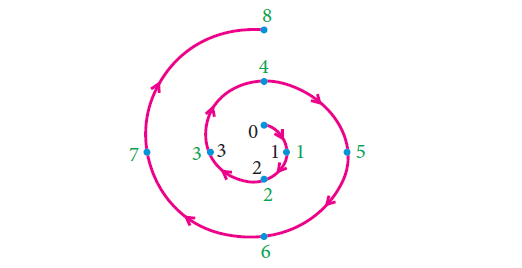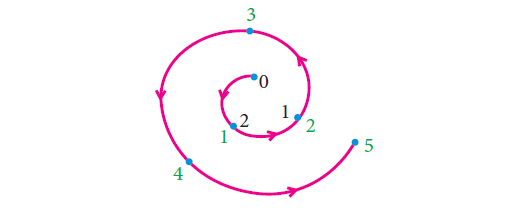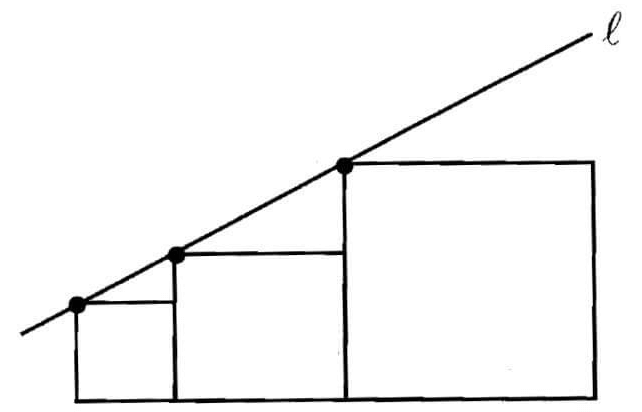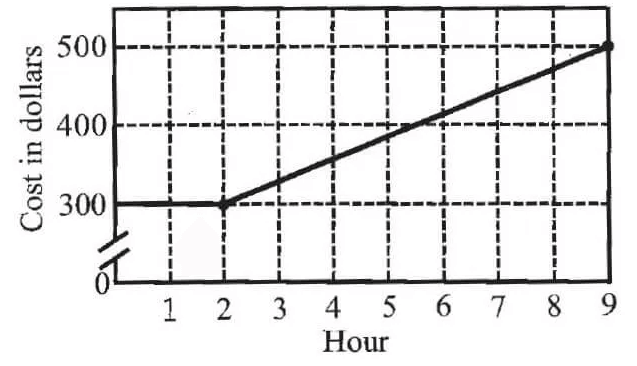CONGRUENCE MODULO
Two integers a and b are congruence modulo n if they differ by an integer multiple of n. That b - a = kn for some integer k.
This can also be written as a ≡ b (mod n). Here the number n is called modulus.
In other words, a ≡ b(mod n) means a -b is divisible by n
For example, 61 ≡ 5 (mod 7) because 61 – 5 = 56 is divisible by 7.
1. When a positive integer is divided by n, then the possible remainders are 0, 1, 2, . . . , n - 1.
2. Thus, when we work with modulo n, we replace all the numbers by their remainders upon division by n, given by 0, 1 ,2, 3, ..., n - 1.
Example 1 :
Find 8 (mod 4).
Solution :
With a modulus of 4 (since the possible remainders are 0, 1, 2, 3) we make a diagram like a clock with numbers 0, 1, 2, 3.
We start at 0 and go through 8 numbers in a clockwise sequence 1, 2, 3, 0, 1, 2, 3, 0.

After doing so cyclically, we end at 0.
Therefore, 8 ≡ 0 (mod 4).
Example 2 :
Find -5 (mod 3).
Solution :
With a modulus of 3 (since the possible remainders are 0, 1, 2, 3) we make a diagram like a clock with numbers 0, 1, 2.
We start at 0 and go through 5 numbers in anti-clockwise sequence 2, 1, 0, 2, 1.

After doing so cyclically, we end at 0.
Therefore, -5 ≡ 1 (mod 3).
Connecting Euclid’s Division lemma and Modular Arithmetic
Let m and n be integers, where m is positive. Then by Euclid’s division lemma, we can write
n = mq + r
where 0 ≤ r < m and q is an integer.
Instead of writing n = mq + r, we can use the congruence notation in the following way.
We say that n is congruent to r modulo m, if n = mq + r for some integer q.
n = mq + r
n - r = mq
n - r ≡ 0 (mod m)
n ≡ r (mod m)
Thus the equation n = mq + r through Euclid’s Division lemma can also be written as n ≡ r (mod m).
Note :
Two integers a and b are congruent modulo m, written as
a ≡ b (mod m),
if they leave the same remainder when divided by m.
Kindly mail your feedback to v4formath@gmail.com
We always appreciate your feedback.
©All rights reserved. onlinemath4all.com
Recent Articles
-
Digital SAT Math Problems and Solutions (Part - 146)
Apr 18, 25 06:52 AM
Digital SAT Math Problems and Solutions (Part - 146) -
Logarithmic Derivative Problems and Solutions
Apr 16, 25 09:25 PM
Logarithmic Derivative Problems and Solutions -
Digital SAT Math Problems and Solutions (Part - 145)
Apr 16, 25 12:35 PM
Digital SAT Math Problems and Solutions (Part - 145)

